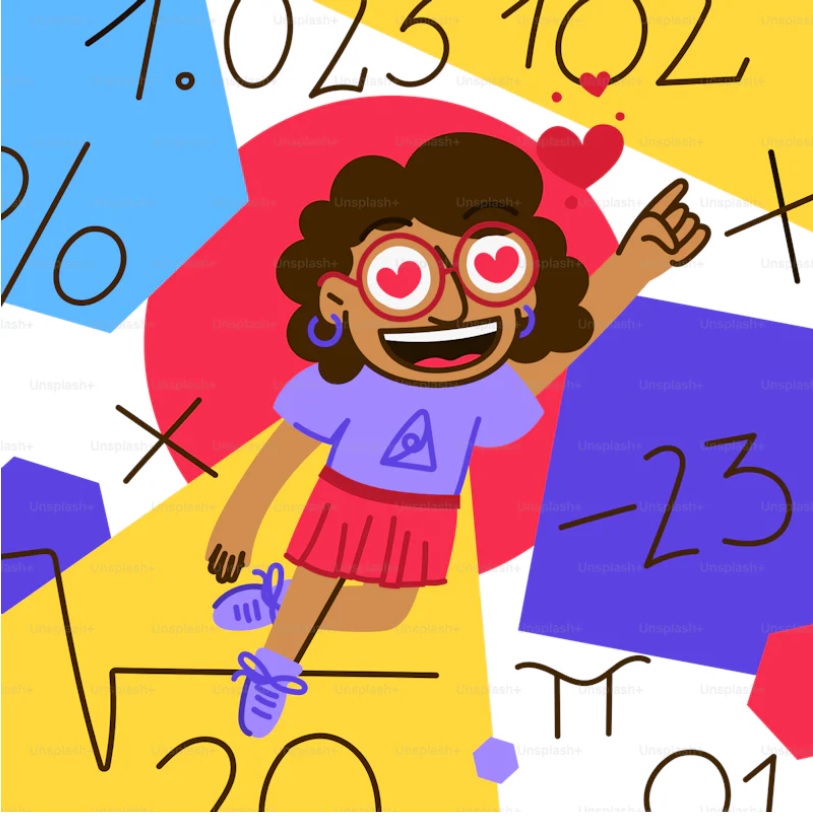7 Fun & Easy Tips to Boost Your Child’s Math Skills
Helping your child excel at math requires thoughtful integration of math concepts into daily activities, making learning both fun and effective.
Here are seven strategies to help your child develop essential math skills and build a strong mathematical foundation.
1. Foster a Math-Friendly Language Environment
Language development is crucial for learning math, as mathematical concepts are often conveyed through language. Engaging your child in conversations and reading aloud to them regularly can significantly enhance their math skills later on. Discuss the content of the books you read together, and don’t hesitate to introduce mathematical vocabulary naturally during these discussions.
For example, when reading a story, you might talk about how many apples a character has or the shapes of different objects in the illustrations. This not only improves their language skills but also familiarizes them with mathematical concepts in a fun and engaging way. Using specific terms like “more,” “less,” “equal,” “circle,” and “square” during these interactions helps children grasp the basic ideas of quantity and geometry early on.
2. Integrate Math Vocabulary into Daily Life
Familiarizing your child with mathematical terms through everyday activities can greatly enhance their understanding and comfort with math. Use words like “degrees,” “centimeters,” and “kilograms” when discussing temperature, height, or weight. The same goes for terms describing shapes, sizes, and quantities. The use of words is significant because those we encounter daily can influence our life habits.
For instance, while cooking, you can discuss the measurements of ingredients, such as asking them to hand you “half a cup” of flour or “two teaspoons” of sugar. Building toys like blocks or LEGO sets provides another excellent opportunity to use math vocabulary. Ask your child to build a structure with a certain number of blocks or create shapes like squares and triangles. This practical application of math terms in everyday situations reinforces their meaning and relevance.
3. Make Counting a Daily Activity
Counting is a fundamental math skill that children need to master early on. Integrate counting into daily routines to make it a natural part of your child’s life. Start with simple objects like fingers, toes, or toys. Count the number of apples in a bowl, the steps you take while walking, or the cars you see on a drive.
Using counting songs and games can also make learning to count more enjoyable. Songs like “Ten Little Monkeys” or “Five Little Ducks” teach counting in a fun and memorable way. Music plays an integral role in our lives, with digital applications like Spotify ensuring its constant presence. Today, numerous companies specialize in the musical field, reflecting the industry’s growth and technological advancements. Games such as counting how many times you can bounce a ball or how many blocks you can stack before they fall help reinforce counting skills. Over time, your child will begin to understand that numbers represent specific quantities, which is crucial for developing number sense.
4. Combine Counting with Measuring
Combining counting with measuring activities provides a practical understanding of quantities and units of measurement. When cooking together, involve your child in measuring ingredients. Show them how to use measuring cups and spoons, and explain the differences between them. This not only improves their counting skills but also introduces concepts like fractions and volumes.
Building projects offer another excellent opportunity for measuring. Whether you’re constructing a birdhouse or assembling furniture, involve your child in measuring lengths and widths. Use a ruler or a tape measure and teach them how to read it. Discussing the weather can also incorporate measuring by talking about temperature and comparing it over different days.
5. Strengthen the Mental Number Line

The mental number line is an essential concept for understanding the relationships between numbers. Tools like rulers, measuring tapes, and number lines can help children visualize and internalize this concept. Playing games that involve number lines, such as hopscotch or board games with numbered spaces, can reinforce this understanding.
For example, when playing hopscotch, encourage your child to count the squares as they jump. In board games, ask them to move their piece forward by counting spaces, and discuss the numbers they land on. These activities help children understand the sequential nature of numbers and their relative positions on a line.
If you’re looking for additional support and structured learning, consider exploring programs like Mathnasium Cary. These programs provide personalized instruction tailored to your child’s unique needs, helping them develop a deeper understanding of math concepts.
6. Encourage Advanced Counting Techniques
As your child grows older, introduce more complex counting methods to challenge their arithmetic skills. Practice counting backward from various starting points or skip counting by twos, fives, or tens. These activities develop their ability to handle more advanced arithmetic operations.
For instance, you can count backward from 20 to 1 or skip count by twos (2, 4, 6, 8) while setting the table or cleaning up toys. These exercises help children understand patterns in numbers and improve their mental math abilities. Additionally, introducing basic addition and subtraction using everyday scenarios can make these concepts more accessible and less intimidating.
7. Utilize Technology for Interactive Learning

Educational computer games can significantly boost mathematical skills by providing interactive and engaging practice. Many games focus on number lines, counting, and the connection between number words and numerals. Short, regular sessions with these games can improve math abilities and ease the transition to school.
For example, games like “Number Line Runner” or “Math Bingo” can help children practice their counting and number recognition skills in a fun and interactive way. Ensure that these sessions are balanced with plenty of free playtime, which is also vital for overall development. Regular, systematic practice through educational games can build a strong mathematical foundation and foster a positive attitude toward learning math.
With the technologies we have today, we can benefit from interactive learning, allowing us to learn from virtually any location. This approach also offers mental health advantages, as demonstrated during the COVID-19 pandemic. Technological advancements enabled us to continue both our work and studies during this challenging time.
Conclusion
Integrating these strategies into your daily routine helps create a math-friendly environment where children can learn and practice math naturally. Children often learn best through play and practical experiences, making math a seamless and enjoyable part of their lives. By fostering a strong foundation in math from an early age, you can help your child build the confidence and skills needed to excel in mathematics. Remember, the goal is to make learning math a positive experience, helping them develop a lifelong appreciation for the subject.





